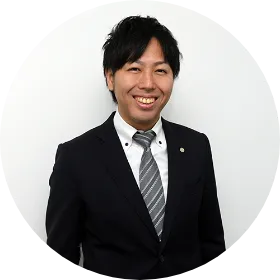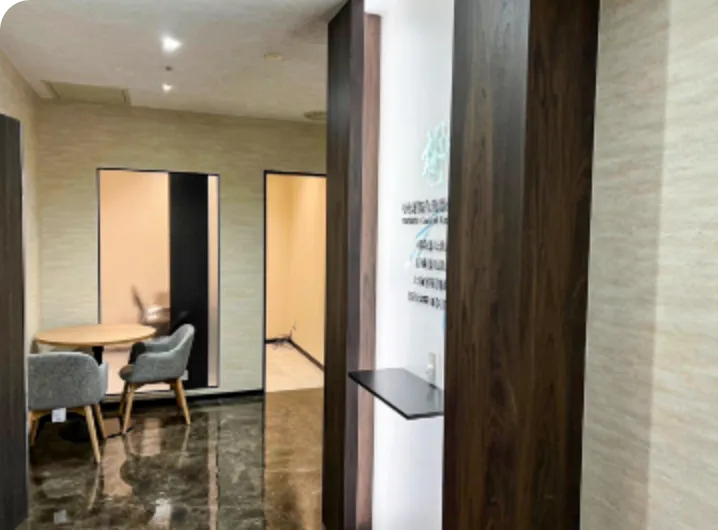Work Visa
Working Visa – Engineer/Specialist in Humanities/International Services (IT)
- 2024.05.14

For foreigners interested in working in Japan, the term “working visa” must be familiar. Simply put, a work visa is a necessary permit for foreigners to work in Japan. While Japanese nationals can freely work in the country, foreigners must have the appropriate work visa or visa category that allows them to work in Japan. However, work visas come in various types, each specifying the occupations one can engage in and the conditions for obtaining them. In this series, we will provide detailed explanations of the different types of work visas and their corresponding eligible occupations and requirements. This time, we will focus on cases related to IT works under the category of “Engineer/Specialist in Humanities/International Services”.
What type of visa is required to work in IT-related occupations?
If you possess the “Engineer/Specialist in Humanities/International Services” residence status, it is possible to work in IT-related positions. IT occupations fall under the “Technology” category. Specific examples include jobs that require knowledge in the field of IT, such as:
Here are some examples:
・Systems Engineer
・Programmer
・Software Developer
Other tasks related to the IT sector
★ Even for those with a background in the humanities, it is possible to work in IT-related positions.
While jobs in the IT field are often associated with scientific knowledge, there are instances where knowledge in the field of humanities is required. This means that individuals with a humanities background can also pursue careers in IT, falling under the category of “Humanities/International Services” rather than “Engineer”.
For example:
Development of translation software
Even if you majored in humanities at university and wish to work in IT-related positions such as computer software development, you don’t necessarily have to give up on roles in the ‘Engineer’ category. If you can demonstrate the relevance of your job tasks to your academic background, there is a possibility of getting IT positions falling under the ‘Humanities, International Services ‘ category.
Requirements for obtaining an “Engineer/Specialist in Humanities/International Services” visa for positions in IT
☑ Educational Requirements
➡University Graduates::
Individuals who have graduated, and majored in subjects relevant to the job.
* Including those who graduated from universities, as well as short-term universities, graduate schools, and research institutes affiliated with universities in Japan and abroad.
*Including individuals holding the DOEACC qualifications of levels A, B, or C in India.
➡ Vocational School Graduates:
Those who have completed a specialized course in Japan, majoring in subjects relevant to the job, and hold the title of “Specialist” or “Advanced Specialist”
☑Work Experience Requirements
The individual must have over 10 years of practical work experience in the relevant field and have acquired the necessary knowledge.
*If the individual majored in subjects related to the job at a university, technical college, etc., the duration of that study can be included in the practical experience.
It is important to note the relevance of the experience to the job.
To prove practical experience, a certificate of employment is required.
As falsification of employment certificates is common, immigration authorities conduct a thorough examination.
★For individuals with qualifications in information processing technologies specified in the Minister of Justice Ordinance (IT Ordinance), educational and work experience requirements are waived. In such cases, it is necessary to submit evidence of passing an examination or a certificate of qualification listed below.
| Japan | A. The Minister of Economy, Trade and Industry conducts the following information processing security support specialist examination based on the Act on Promotion of Information Processing (Act No. 90 of 1970) |
| B. The Minister of Economy, Trade and Industry conducts the following information processing engineer examinations based on the Act on the Promotion of Information Processing. (1) IT Strategist Examination (2) System Architect Examination (3) Project Manager Examination (4) Network Specialist Examination (5) Database Specialist Examination (6) Embedded System Specialist Examination (7) IT Service Manager Examination (8) System Audit Engineer Examination (9) Applied Information Engineer Examination (10) Basic Information Engineer Examination (11) Information Security Management Examination |
|
| C. The Minister of International Trade and Industry or the Minister of Economy, Trade and Industry conducts the following information processing engineer examinations: (1) Class 1 Information Processing Engineer Certification Examination (2) Class 2 Information Processing Engineer Certification Examination (3) Class 1 Information Processing Engineer Examination (4) Class 2 Information Processing Engineer Examination (5) Special Information Processing Engineer Examination (6) Information Processing System Audit Engineer Examination (7) Online Information Processing Engineer Examination (8) Network Specialist Examination (9) System Operations Management Engineer Examination (10) Production Engineer Examination (11) Database Specialist Examination (12) Microcomputer Applied System Engineer Examination (13) System Analyst Examination (14) System Audit Engineer Examination (15) Application Engineer Examination (16) Project Manager Examination (17) Advanced System Administrator Examination (18) Software Development Engineer Examination (19) Technical Engineer (Network) Examination (20) Technical Engineer (Database) Examination (21) Technical Engineer (System Management) Examination (22) Technical Engineer (Embedded System) Examination (23) Technical Engineer (Information Security) Examination (24) Information Security Administrator Examination (25) Information Security Specialist Examination |
|
| China | A. The Education and Examination Center of the Ministry of Industry and Information Technology of China conducts the following examinations. (1) System Analyst (2) Information System Project Manager (3) System Architect (4) Software Design Engineer (5) Network Engineer (6) Database System Engineer (7) Programmer |
| B. The following examinations are conducted by the Electronic Education Center of the Ministry of Information Industry of China or the Center for Electronic Education and Examinations of the Ministry of Industry and Information Technology of China. (1) system analyst (2) Senior Engineer (Software Engineer) (3) System analyst (system analyst) (4) Software designer (software design engineer) (5) Network engineer (network engineer) (6) Several warehouse systems engineer (database system engineer) (7) Programmer (Programmer) |
|
| Philippines | B. The Philippine National Information Technology Standards Foundation (PhilNITS) conducts the following examinations: (1) Fundamental Information Technology Engineer Examination (2) Applied Information Technology Engineer Examination |
| B. Fundamental Information Technology Engineer exam conducted by the Philippine-Japan Information Technology Standards Testing Foundation (JITSE Phil) | |
| Vietnam | The High Tech Incubation Training Center (HITC) conducts the following examinations: (1) Fundamental Information Technology Engineer Examination (2) Applied Information Technology Engineer Examination |
| B. The following exams conducted by the Vietnam Information Technology Testing and Training Support Center (VITEC) or Vietnam Training and Examination Center (VITEC) (1) Fundamental Information Technology Engineer Examination (2) Software development engineer (software design and development engineer) exam (3) Applied Information Engineer (Applied Information Technology Engineer) Exam |
|
| Myanmar | The Myanmar Computer Federation (MCF) in Myanmar conducts the following examinations: A. Fundamental Information Technology Engineer Examination B. Applied Information Technology Engineer Examination |
| Taiwan | The Incorporated Industrial Policy Association (III) in Taiwan conducts the following examinations: A. Software Design and Development IT Expert Examination B. Network Communication IT Expert Examination C. Information System Security IT Expert Examination |
| Malaysia | Fundamental Information Technology Professional examination conducted by the Multimedia Technology Promotion Headquarters (METEOR) in Malaysia |
| Thailand | The following examinations in Thailand: A. The National Science and Technology Development Agency (NSTDA) conducts the following examinations: (1) Fundamental Information Technology Engineer Examination (2) Applied Information Technology Engineer Examination B. Fundamental Information Technology Engineer exam conducted by the National Electronics and Computer Technology Center (NECTEC) |
| Mongolia | The Mongolian National IT Park (NITP) in Mongolia conducts the following examinations: A. Fundamental Information Technology Engineer Examination B. Applied Information Technology Engineer Examination |
| Bangladesh | The Bangladesh Computer Council (BCC) in Bangladesh conducts the following examinations: A. Fundamental Information Technology Engineer Examination B. Applied Information Technology Engineer Examination |
| Singapore | Certified IT Project Manager (CITPM) certified by the Singapore Computer Society (SCS) in Singapore |
| Korea | The following qualifications are certified by the Korea Industrial Manpower Corporation in Korea: A. Information Processing Engineer (Engineer Information Processing) B. Information Processing Industrial Engineer (Industrial Engineer Information Processing) |
Reference source:https://www.moj.go.jp/isa/laws/nyukan_hourei_h09.html
If you have any concerns about the relevance of your work experience, please feel free to contact us
☑ Compensation
The compensation should be equal to or greater than what a Japanese national would receive for the same role
Summary
This time, we shared the points of obtaining the “Engineer/Specialist in Humanities/International Services” residence status for working in IT-related jobs, as well as the types of employment and their requirements.
In recent years, Japan has faced a shortage of IT engineers, prompting many foreigners to acquire the specified visa and engage in IT-related work. If you are considering working in IT in Japan, you might want to explore obtaining the “Engineer/Specialist in Humanities/International Services” residence status.
If you have any concerns about the relevance of your work experience or if you feel uncertain about the application process, please feel free to contact our office for assistance.
We are Yanagi group, which have offices in Osaka (Abeno and Tennoji), and our affiliated offices in Tokyo (Shibuya and Ebisu) are also available for an on-site consultation. We have handled many applications for permanent residence permits, naturalization permits, work visas, college student visas, management visas, etc., as well as visa renewal procedures related to the status of residence with the Immigration Bureau (Immigration Bureau) as a one-stop service. Our experienced administrative scriveners are also available to help you with any problems you may have.
We also have staff members who can speak each of the native languages and can assist you in obtaining a visa.
※If you wish to be consulted in Nepali or Bengali, please inform us in advance via our website or social media, and the translator will contact you ahead of time.
Please feel free to contact us if you have any questions about your status of residence or visa, even if they are trivial.
Toll-free number: 0120-138-552
For English speakers: 080-9346-2991
For Chinese speakers: 090-8456-6196
For Korean speakers: 090-8448-2133
For Vietnamese speakers: 080-5510-2593
Editor of this article

- Ryota Yanagimoto
- Administrative Scrivener/Judicial Scrivener
At the age of 24, he passed the national examinations for judicial scrivener, administrative scrivener, and wage service manager at the same time.
While working as a full-time lecturer at a major prep school, he independently opened a legal office related to judicial scriveners and administrative scriveners,
and he has experience as a judicial scrivener and an administrative scrivener for more than 15 years so far.
He has been actively contributing to various industries such as publicly listed companies, real estate companies, financial institutions, elderly care services, and professional organizations by conducting seminars, lectures, and talks.
And now he has a record of over 60 presentations so far.
Furthermore, as the president of a Japanese language school announced by the Ministry of Justice and Acts, and an advisor to a real estate company (capable of handling foreign clients),
he has been involved in various aspects of industries related to foreigners.
It is recommended to consult with experts when it comes to visas, naturalization, and residency matters.

Our office has specialized experts in visa and naturalization applications who are available to assist with free consultations (limited to the first session) and inquiries related to various visa applications and naturalization applications.
Additionally, we have foreign staff proficient in English, Chinese, and Korean languages with specialized knowledge, and they are present to provide support. They can accommodate consultations and inquiries in each language. Feel free to use our free consultation and inquiry services from here.

























 0120-138-552
0120-138-552 Free
Consultation
Free
Consultation Contact Us
Contact Us